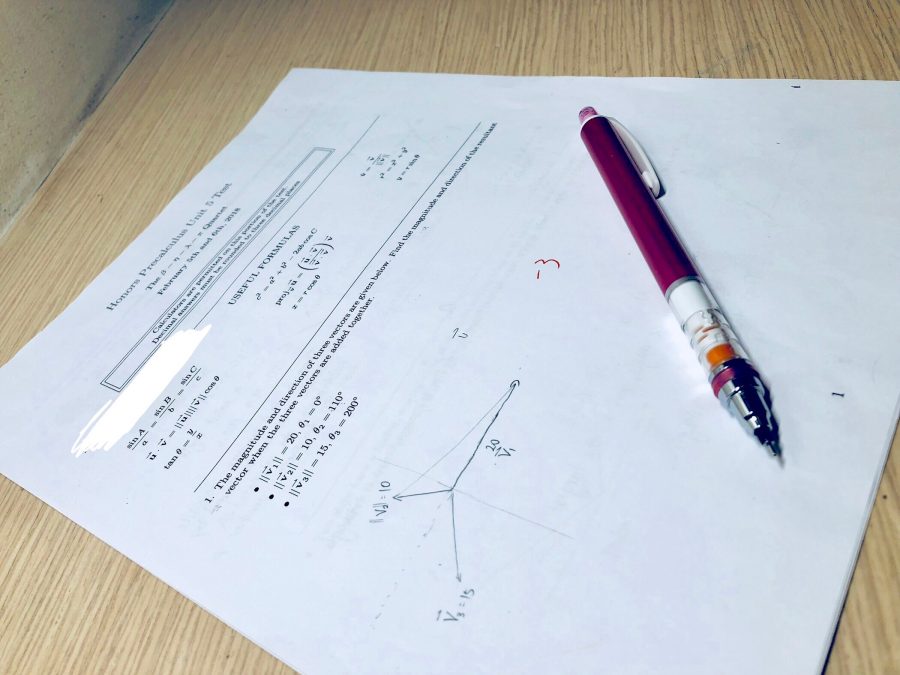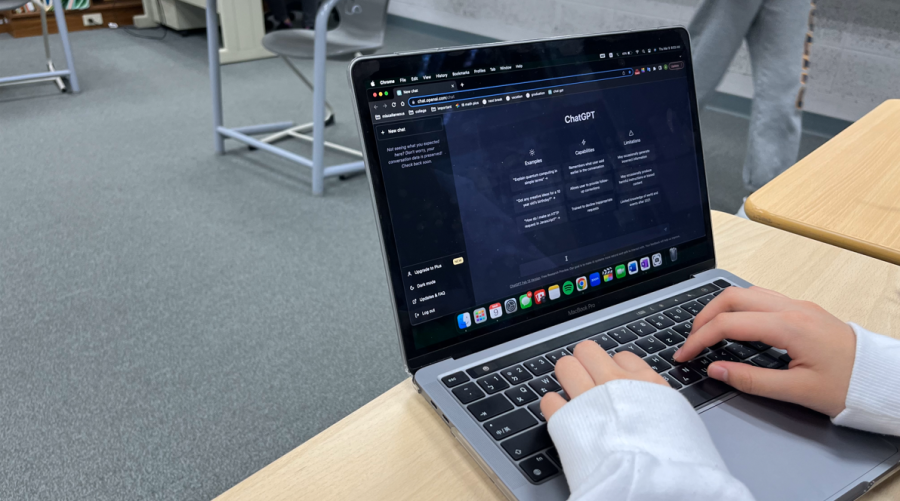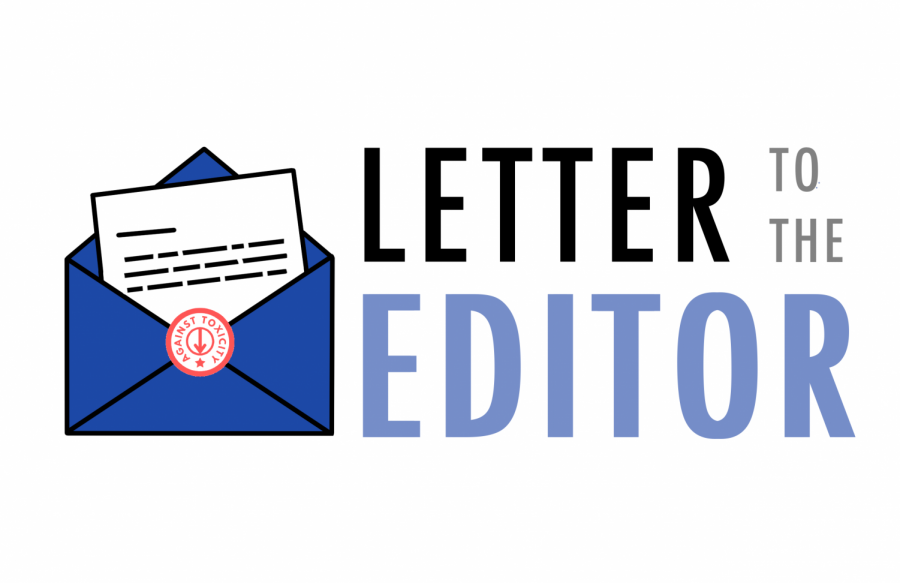By Upper School principal Dr. Richard Hartzell
To the Editor:
Re Why new honors classes deserve their title (opinion article, Feb. 2):
At first, I planned to extemporize on the pros and cons of such riveting issues as the renaming of some math courses; however, given that only a simple mind could find any disadvantages, I abandoned my initial project in favor of a deeper existential question: Do my students deserve the educational opportunities that Taipei American School affords? After about five seconds of profound reflection (my mind is not as quick as it used to be), I determined that the answer is, of course, no.
End of article? No! Instead of addressing puerile floccinaucinihilipilification at TAS, I have decided to let you in on some esoteric—perhaps even hermetic—secrets. Please do not tell anyone about what you are about to read. This is only for the intellectually curious, the open-minded, the special.
First secret—oh, and this is a doozy—your TAS GPA, the one with PE grades and all those impressive weights, has no relevance to college admissions. Really? Yes, really. (What a bummer!) Now, come on, if you are reading something written by someone as strange as Dr. H, clearly you are a bright, perspicacious person. You didn’t really think that Rice University was going to take your A in Ceramics I into account, did you? Or your A+ in PE 9? And how is Rice going to compare your weighted grades to those of students whose schools do not weigh grades? How? Here’s how: each university has its own system of recalculating GPA. Most strip the weighting and discard the “electives”; many do additional calculus using what’s left according to manipulations that no one outside that university’s alchemical admissions magicians will ever know. So, why does Upper School have a weighted GPA? Good question! I asked the same one myself! Let me just say here that the arcana of independent schools are numerous and, by definition, mysterious.
Second secret: true students take challenging classes and participate in extracurricular activities because they are interested in the world of the intellect and enjoy participating in activities. For example, any students who take AP English Literature, currently taught by a curmudgeon with unrealistic expectations and no hair, merely to build their “college resume” (since when do children have resumes?) are fools. The course is designed to impress young lovers of literature, not Yale’s admissions staff. If the latter were true, we could simply offer the same course title and teach Harry Potter—and Cornell would never know! College preparatory independent schools were not invented to be stepping stones to Georgia Tech; they were created to prepare students for success at college. (Shh! Please don’t let anyone find this out!)
Third secret: you are not alone—everyone believes that life is unfair, and all of us, like Regina George so aptly puts it, believe that we are just victims in this situation (at TAS, at home, in college admissions, in life). There is no cure for our status as victims, although the next time you indulge in self-pity, you might try to remember that, while you suffer through TAS, there are millions of children who have no schools, no teachers, and no real homes; there are millions more who attend pseudo-schools and don’t even have an endless supply of electronic toys. It’s tough being a human being because being human requires more than walking on two legs and suffering through the slings and arrows of life in Tianmu; it’s less tough for us, however, than it is for more than a couple billion other persons.
Fourth secret: you are not where you go to college. It is even possible to go to Harvard and still become a wonderful person, as the case of our own Dr. Bruce so clearly shows. If you somehow subscribe to the notion that you should work hard to get into a college that will make your parents (or you) proud, you are a greater fool than the above-mentioned fools. Dr. Soll, the MacArthur Genius Award winner whom you heard if you weren’t asleep and in the process of earning the title of greatest fool of all, attended the University of Iowa. Did you know that? What can you learn from that fact?
You can either join the culture of idiocy, or you can rebel and become yourself. If you rebel, you will be different and, therefore, an outcast, but you will be able to continue to look at yourself in the mirror.
Final secret: you are surrounded by a culture of idiocy. Take Logan Paul, for instance. Please, take Logan Paul. Or consider how some unnameable person could possibly become the leader of the (for now?) most powerful country on this imperiled Earth. Allow yourself to be entertained, but be careful not to swallow the shallow sound bites of wisdom that constantly pummel you, the most pernicious among which is the ever popular, “Just be yourself.” Just be yourself? Really? I mean, I love Julian, for example, but, really, Julian, is that all there is? That’s all this world is going to get? Nothing more? Please don’t settle for being yourself. Here’s some advice, everyone. Each time you look in the mirror, forget about your hairstyle (okay—admittedly this is easier for me) or your complexion, and ask yourself some important questions. Have I done anything to get better in any way? Do I deserve all the privileges I have? (No, you don’t. None of us does.) Who am I? Who do I want to become? Why? These questions are as challenging as they are important. In the past, you would have been counseled by Dostoevsky and Dickens, rather than Sachs and Silicon. You would have read, instead of watched, and you would have been forced to find information on your own, rather than being bombarded with it. You can either join the culture of idiocy, or you can rebel and become yourself. If you rebel, you will be different and, therefore, an outcast, but you will be able to continue to look at yourself in the mirror.





![A myriad of impressive trophies and awards. [ANNABELLE HSU/THE BLUE & GOLD]](https://blueandgoldonline.org/wp-content/uploads/2025/09/Awards2-1200x512.jpeg)
![Students' calendars say goodbye to exam week. [ANNABELLE HSU/THE BLUE & GOLD]](https://blueandgoldonline.org/wp-content/uploads/2025/09/Exam-week-1200x740.jpg)
![A collection of college flags. [PHOTO COURTESY OF AMBER HU ('27)]](https://blueandgoldonline.org/wp-content/uploads/2025/05/IMG_5029-1200x577.jpeg)

![An SAT word cloud. [PHOTO COURTESY OF WORDCLOUDS]](https://blueandgoldonline.org/wp-content/uploads/2025/05/SAT.jpeg)
![Collage of banned books, including “The Handmaid’s Tale” by Margaret Atwood. [MINSUN KIM/ THE BLUE & GOLD]](https://blueandgoldonline.org/wp-content/uploads/2025/04/IMG_4274-1200x681.jpeg)